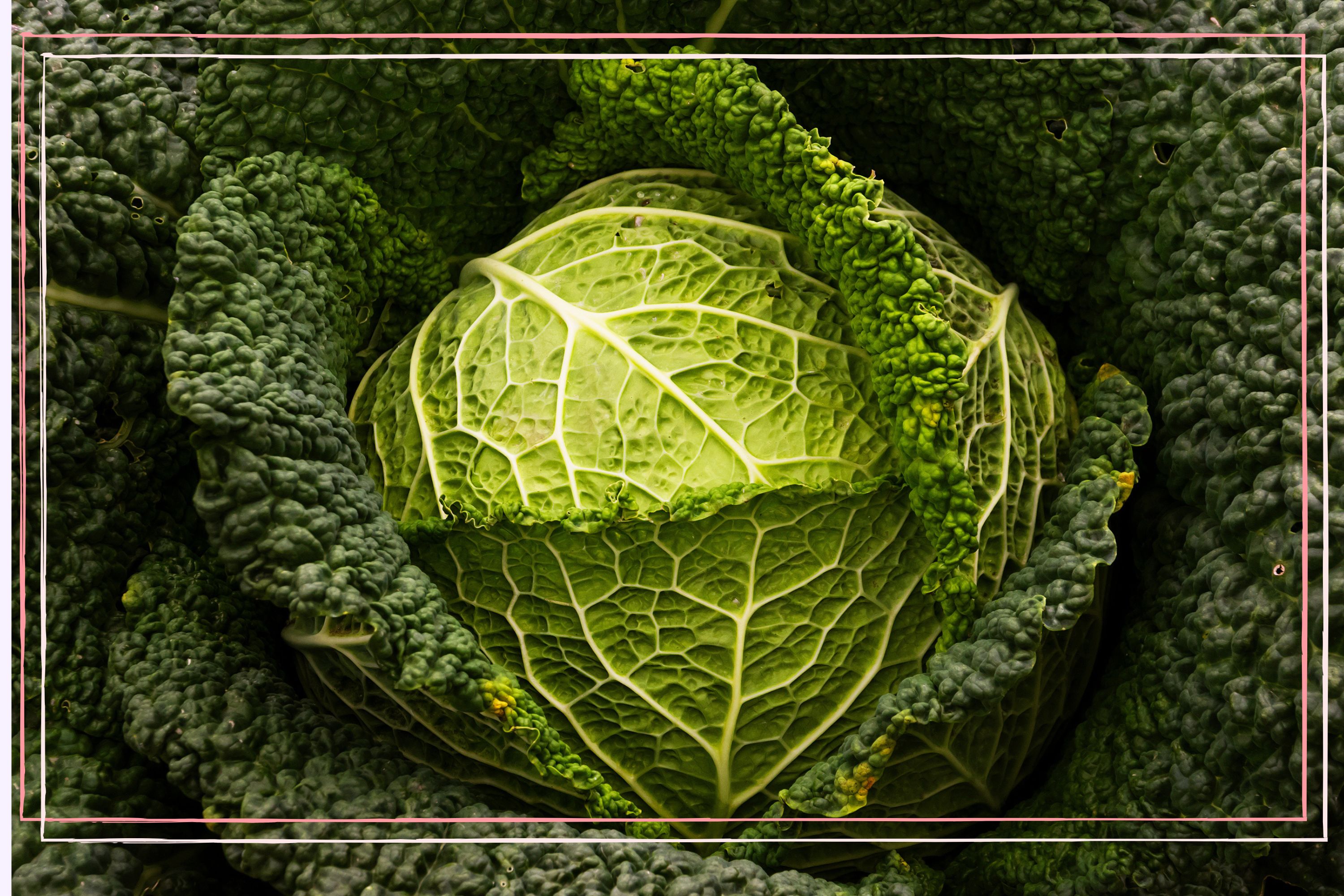Cabbage soup diet, recipe and review: How much weight can you lose?
You've got to really love the veg to attempt this diet plan


Those considering the Cabbage soup diet should know it requires you to stomach the constant soups (and their side-effects).
It's often tops the list as one of the most extreme weight loss methods out there. However, caution is very much emphasised for those attempting the Cabbage Soup diet. Although sold as a diet that works fast - the plan has decreased in popularity in the last few decades in part to the unpleasant side effects, plus the fact that you typically won't lose weight and keep it off.
"Cabbage is a great source of fibre and it's essential for gut flora and bowel health," says nutritionist Mina Khan. "However, it should be eaten as part of a balanced diet. This is not a diet I would recommend anyone to follow." Those still keen to know what the fuss is about, should swat up on what the experts want you to know before attempting the Cabbage Soup diet.
What is the cabbage soup diet?
The cabbage soup diet is an extremely low-fat, high-fibre diet that lasts for seven days in total. Predominantly made up of cabbage soup, you can eat some meat and other vegetables on the plan - such as potatoes and tomatoes.
There's strick drink rules too. To wash down your cabbage soup lunch and diet, you're allowed either water, unsweetened tea or coffee.

How does the cabbage soup diet work?
The concept is fairly simple: you make and eat as much cabbage soup as you want. Generally people eat between two and three bowls per day - and because it contains virtually no calories, this leads to weight loss.
The idea behind the diet is that you feel (somewhat) full while losing weight due to being in an intense calorie deficit.
Parenting advice, hot topics, best buys and family finance tips delivered straight to your inbox.
While the cabbage element is naturally essential for this diet, you can eat other low-fat foods while on the plan. Mina, says, “The soup doesn’t only contain cabbage. Many recipes include green peppers, onions, mushrooms and other vegetables."
"As well as cabbage soup, the diet allows you to start incorporating different fruits and vegetables in the first few days, and slowly reintroduces lean meats, dairy and rice towards the end of the 7 day program."
How much weight can you lose on the cabbage soup diet?
You can lose up to 10 pounds (4.5kg) in one week on the cabbage soup diet. Although you're likely to see this weight loss quickly, most of it will likely return as soon as you go back to eating normal food.
Unfortunately going on a severely restrictive diet like this one could also have a negative impact on weight loss in the future. As multiple studies from the University of Kiel and Northeastern Illinois University show, when you reduce your calorie intake to such a detrimental level, your body responds by lowering your metabolic rate. This means that the number of calories you burn in a day will reduce, meaning that you won't have the advantage of burning calories through simple daily functions like sleeping and sitting.
When you lower your metabolism, you also enter what is commonly known as a weight-loss plateau. So even if you kept up this diet for a prolonged period of time, you would eventually stop seeing results. One study from 2016 even suggests that you'd stop seeing results as soon as three days into the diet.
If you are looking to go on a reduced-calorie diet, there are significantly better ones to choose from. For example, intermittent fasting reduces the period of time that you have to eat during the day, meaning that you're less likely to consume more calories. The sirtfood diet is another popular option for those looking to reduce their calories as it cuts participants' intake down to 1000 calories per day for the first week.
What can you eat on the cabbage soup diet?
The cabbage soup diet is restricted to the dieter eating only cabbage soup, alongside other vegetables and some meats. You're allowed one potato a week and can enjoy snacking on fruit too - but bananas are prohibited.
In terms of beverages: water, plus unsweetened tea and coffee is allowed. So you'll have to stop drinking alcohol if on this plan.
A post shared by Savita Chefdehome (@savitachefdehome)
A photo posted by on
Cabbage Soup diet: 7-day plan
- Day 1: You can eat as much fruit as you want (except bananas) along with unlimited cabbage soup, water and unsweetened tea and coffee.
- Day 2: Avoid fruit but eat raw veg and cabbage soup. You're allowed a baked potato in the evening.
- Day 3: As much cabbage soup, fruit and vegetables as you like (excluding potatoes and bananas).
- Day 4: Unlimited cabbage soup. You can drink some skimmed milk and eat up to eight bananas.
- Day 5: Lots of cabbage soup and 565g of beef and six tomatoes. Makes sure you drink 6-8 glasses of water.
- Day 6: As much cabbage soup, beef and vegetables as you like (excluding potatoes).
- Day 7: Unlimited cabbage soup, a little brown rice and sugar-free fruit juice.
How to make cabbage soup
Ingredients:
- 6 large onions chopped
- 2 green peppers diced
- 2 cans of tomatoes (diced or whole)
- 250g mushrooms, sliced
- 1 bunch celery, chopped
- 1/2 head cabbage
- chopped 3 carrots
- sliced 1 package dry onion soup mix
- 1 or 2 cubes bouillon (optional)
- Salt and pepper
- A pinch of Cayenne pepper, curry powder, mixed herbs or any other seasoning for added flavour
Method:
- Use spray oil to fry the chopped onions in a large pot.
- Add the green pepper pieces and cook for one min.
- Add the chopped cabbage leaves, sliced carrots, celery and mushrooms.
- Sprinkle over a little cayenne pepper or curry powder.
- Add 12 cups of water and any additional stock cubes.
- Cook over a medium heat until the vegetables is the vegetables are tender and the soup is the right consistency.
Pros - cabbage soup diet
✅ The only real positive of this diet is that it can cause rapid weight loss.
While there are no specific studies on the cabbage soup diet, similar restrictive diets have been looked at. One study from Karolinska Hospital in Sweden looked at three groups of obese patients over 6 weeks, on diets ranging from 420 calories per day to 880 calories. They found that all the diets were equally effective in the long-term treatment of obesity, however the slightly higher calorie diets had fewer side-effects.
Another looked at weight loss as a result of a 800-calorie diet over three months and a 458-calorie diet over one month.
One 2006 study looked at weight loss as a result of the 800-calorie diet over three months and a 458-calorie diet over one month. Researchers found that both sets of participant lost substantial amounts of weight over time periods. However, over half of all participants suffered trivial complications during this time, with gastrointestinal issues and anxiety coming up as the two most common.
The cabbage soup diet aims to cut calories to an even lower level than any of the diets in these studies, leading to the natural conclusion that it's not a healthy way to lose weight.
Cons - cabbage soup diet
❌ Low in calories and unsustainable
“If done for a number of days the person could miss out on vital calories, protein, vitamins and minerals essential for the body to function and to allow you to carry out your day-to-day tasks,” Nutritionist Jasmine Carbon says. “The person following such a diet may see the effects, but a diet like this is not sustainable and should not be practiced for an extended period of time."
❌ Wreaks havoc on your blood sugar levels
Nutritionist Mina agrees, adding that the diet's focus on cabbage soup can wreak havoc with your blood sugar levels. Low blood sugar often leaves people feeling faint, weak, unable to concentrate and it's dangerous particularly for those with diabetes.
❌ Causes flatulence and bloating
The cabbage soup diet is also famous for leaving those who follow it with serious flatulence, an unwanted side-effected backed up by science. It happens because cabbage is high in fibre, which naturally causes wind, and it can cause additional digestive issues for those who aren't used to eating so much fibre in their daily diet.
“Expect to experience some gastro-intestinal discomfort such as bloating, gas build up, nausea and flatulence,” adds Jasmine. Diarrhoea is another common side-effect of the cabbage soup diet plan."
Cabbage soup diet review
Caitlin Fitzgerald, 54, from Morpeth, Northumberland, tried the Cabbage Soup Diet. And this was her verdict:
"My husband's work do was coming up and I wanted to fit back into a slinky black dress I'd had for years. I put off dieting until I only had a couple of weeks to go then suddenly panicked! The cabbage soup diet seemed a good way of losing weight fast.
"I made a fresh batch of the cabbage soup every two or three days and followed the other bits of the plan, like eating lots of fruit and veg. Though I didn't mind the cabbage soup to start with, by about day four, I'd gone right off it! I tried to make it more interesting by adding different veg and herbs but it didn't make it much better.
"It had rotten side effects too - my husband nearly ended up sleeping in the spare room I was so full of wind! But I stuck at it for a week and lost four pounds. I fitted into my little black dress but, to be honest, I'd put all the weight back on two weeks later!"
Cabbage soup diet: Before and after picture
A post shared by Tasha (@tashafindsaway)
A photo posted by on
The cabbage soup diet: A nutritionist’s verdict
The cabbage soup diet is not a good way to lose weight, our nutritionists conclude. While it might be a quick fix in the short-term, evidence suggests that any weight loss from the cabbage soup diet will quickly plateau after about three days.
Then following this, anyone who tries the diet is more than likely to just put the weight back on again - defeating the purpose of the diet in the first place.
“In terms of weight loss, this diet could definitely help almost anyone to shed some weight within a few days,” says Mina. “However it’s crucial to bear in mind that this diet is not a sustainable way to lose weight in the long run. It will likely result in you regaining the weight you lose once you stop restricting your intake of normal foods.”
It also comes with plenty of nasty side-effects, including headaches, nausea, an inability to concentrate, flatulence, bloating among many others.
In addition to this, the British Nutrition Foundation actively warns against single-food diets.
"No single food or food group can provide everything we need to be healthy," they say. "Eating a variety of different foods from each of the food groups can help us get the full range of nutrients our bodies need."
If you're looking to lose weight in a healthy way, it's better to focus on calories in versus calories out. "To lose weight, the energy you take in from food must be less than the energy you use," guidance says. So, instead of reducing calorie intake down to a unhealthy level, "set yourself realistic goals to achieve a healthy weight".
"Try to make healthy diet and lifestyle changes you can keep, even after you have reached your desired weight, so you do not regain the weight you have lost."

Mina Khan is the founder of nutraceuticals brand, Formulate Health. She qualified as a pharmacist and spent 25 years in that career before moving into the health food and nutraceuticals industry. Having been brought up with Ayurvedic Medicine, she believes passionately in the use of natural ingredients to help prevent and manage a range of health conditions. Her combination of pharmacy experience coupled with a traditional medicinal background puts Mina in an incredibly unique position. She now uses evidence-backed natural ingredients to create supplements.

Jasmine is a registered Dietitian and member of the British Dietetic Association (BDA). She graduated from the University of Surry in 2015 with a BSc (Hons) in Nutrition and Dietetics. She is registered with the Health & Care Professions Council (HCPC) and Vice Chair for the British Dietetic Association London Branch. Jasmine has 5 years of clinical experience providing 121 consultations, group sessions, health education talks and training in both hospital and community settings.
Video of the Week

Grace Walsh is a health and wellbeing writer, working across the subjects of family, relationships, and LGBT topics, as well as sleep and mental health. A digital journalist with over six years experience as a writer and editor for UK publications, Grace is currently Health Editor for womanandhome.com and has also worked with Cosmopolitan, Red, The i Paper, GoodtoKnow, and more. After graduating from the University of Warwick, she started her career writing about the complexities of sex and relationships, before combining personal hobbies with professional and writing about fitness.